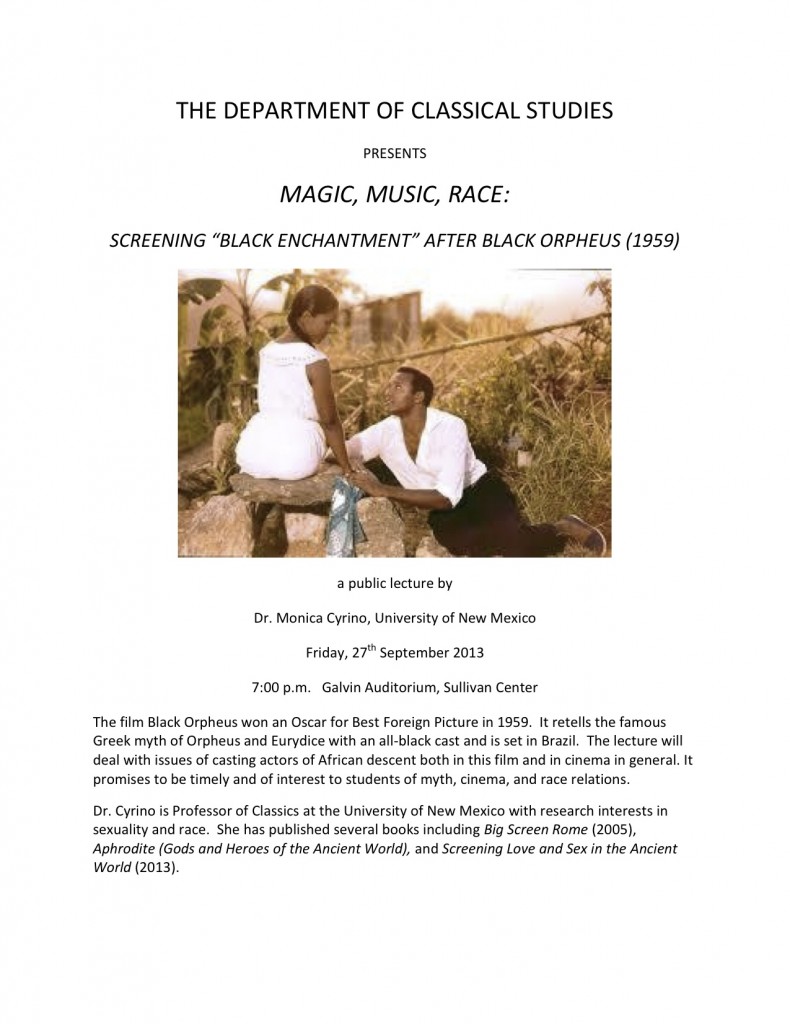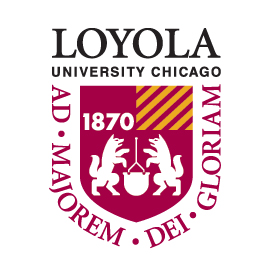
Category : film
CFP: “Exploring Awe and Wonder”
Interdisciplinary conference
Exploring awe and wonder
6-8 September 2013
Institute for Simulation and Training
University of Central Florida, Orlando, Florida
Sponsored by the John Templeton Foundation’s
Research Grant: Space, Science and Spirituality
http://www.chdr.cah.ucf.edu/spaceandspirituality/
The concepts of awe and wonder occupy an important place in the history of ideas, often associated with the beginnings of philosophy and with religious experience. In contemporary times, however, they are under-studied and rarely discussed. It is not clear that such experiences are more rare in our time. One might argue that given our ability to explore more and more corners of the physical and intellectual universe using technology and advanced science, and our capacity for representing the results of such explorations in art, film and various mass media, we should expect that experiences of awe and wonder are more common.
The interdisciplinary conference, Exploring Awe and Wonder, will bring together researchers in psychology, emotion theory, neuroscience, philosophy, art history, religious studies, and other relevant fields to explore the science and phenomenology of awe and wonder. Proposals for presentations in these areas are welcome. A special session on Space, Science and Spirituality is being organized to present current research on the experience of awe and wonder during space flight.
Jesse Prinz (Philosophy, CUNY Graduate)
Michelle Shiota (Psychology, Arizona State University)
Invited speakers
Jonathan Cole (Neuroscience, Bournemouth University)
Joerg Trempler (Art History, Ludwig-Maximilians-Universität and the Yale Center for British Art)
Jeff Williams (NASA, Astronaut)
Send abstracts and session proposals by June 15, 2013 to
Bruce Janz
Department of Philosophy
Center for Humanities and Digital Research
University of Central Florida
CFP: Faith, Film and Philosophy conference, “Of Fairy-stories, Fantasy and Myth”
Call for Papers:
“Of Fairy-stories, Fantasy and Myth”
October 11th & 12th, 2013
Gonzaga University’s Faith and Reason Institute and Whitworth
University’s Weyerhaeuser Center for Faith and Learning are pleased to
announce their Seventh Annual Seminar on Faith, Film and Philosophy,
entitled “Of Fairy-stories, Fantasy and Myth.” The past decade has
seen film adaptations of J.R.R. Tolkien’s The Lord of the Rings, as
well as three of C.S. Lewis’s “Chronicles of Narnia,” and, most
recently, Tolkien’s The Hobbit. Although the immediate inspiration for
our seminar is the release of the first part of Peter Jackson’s
cinematic treatment of The Hobbit, our interest is neither solely nor
primarily in Jackson’s films. Instead, we wish to explore a variety of
cinematic treatments of myth, fairy-story, and fantasy, and to explore
philosophical and religious questions raised by such films. The Star
Wars saga, the various incarnations of the world of Star Trek, the
imaginative world of Pan’s Labyrinth, the Narnia films, Snow White and
the Huntsman, Prometheus, Wrath of the Titans, How to Train Your
Dragon, Arrietty, Ponyo, Hugo, Shrek, Knowing, The Road, After
Earth….These are but some of the films that fall within the purview of
our seminar. Even apart from the content of these films, the genres
touched upon in our title raise very general questions about art,
reality, meaning, and truth. For example, is film an appropriate art
form for mythopoesis? What is the nature of the reality portrayed in
these films? What truth, if any, can films of this sort explore or
convey?
Possible topics for seminar papers include the following, although
proposals on other topics or questions of relevance are certainly
welcome and encouraged.
• What constitutes a literary fantasy?
• What motivates literary fantasies? Is there a psychological payoff?
If so, what is it?
• What is the underlying neurological basis for fantasy? Why do we
fantasize in the first place and what evolutionary value might this
have?
• Gender identity in fantasy and science fiction.
• Social functions of fantasy literature, including political
functions.
• Cinematic treatments of sexual fantasies.
• Revenge fantasies.
• Heroic figures and our fantasies of being like them. (What do Iron
Man and I have in common?)
• Fantasies of the end of the world, their characteristics and
functions.
• Fantasies and reality: since most fantasies are never realized in
actuality, why do we keep having them?
• What’s the difference between a fantasy, whether literary and filmic
and outright hallucination or delusion?
• Criticisms of the work of Peter Jackson.
• Epistemological issues: what can be known by means of a fantasy that
might not be known otherwise?
• The Life of Pi as fantasy.
• Fantasy and possible worlds.
We are particularly interested in popular films from the last 20
years, although the program committee will certainly consider
exceptions to the 20-year rule.
Seminar sessions will take place on Friday (October 11th) and Saturday
(October 12th). Public lectures and other events associated with the
seminar will take place in the days leading up to the seminar. One of
the public lectures will be on the evening of October 11th, when one
of our invited speakers will give a keynote address. The invited
speakers include Michael Foley (Baylor University), Richard McClelland
(Gonzaga University), and Katherin Rogers (University of Delaware).
These invited speakers will also participate as resident “experts”
during the seminar discussions.
Proposals not longer than two pages (double-spaced), and in Word
format, should be submitted electronically to Dr. Brian Clayton at
clayton@gem.gonzaga.edu no later than 30 June 2013, and should include
title, author(s), institutional affiliation (if any), mailing address,
email address, and the text of the proposal. The seminar organizers
will send acceptances by 8 July 2013.
The seminar and its associated public events are part of a series of
jointly-sponsored programs focused on “Faith, Reason and Popular
Culture.” The conviction behind these programs is that if Christian
institutions of higher learning are to respond properly to their
charge to be places where faith seeks understanding, then they must
engage contemporary popular culture. Film is among the most powerful
and important forms of popular culture. Thus, the seminar organizers
seek scholars who will engage in two days of discussion investigating
issues of faith and philosophical import raised by contemporary
popular film. Presenters need not have any formal academic
appointment.
For further information please contact Dr. Brian Clayton, Director,
Gonzaga University Faith and Reason Institute at
clayton@gem.gonzaga.edu.
